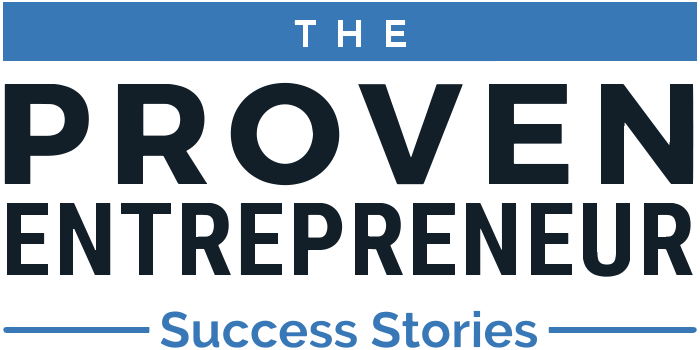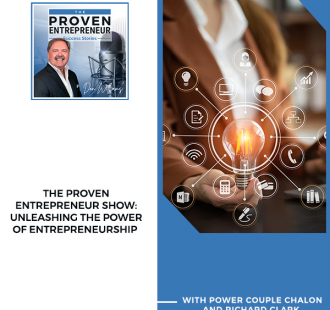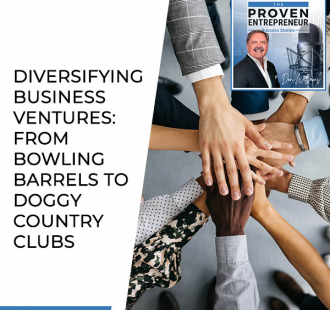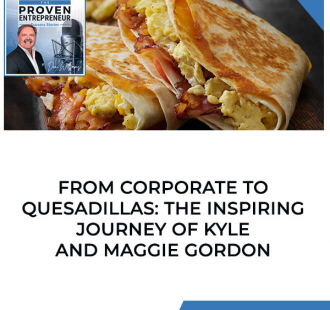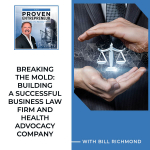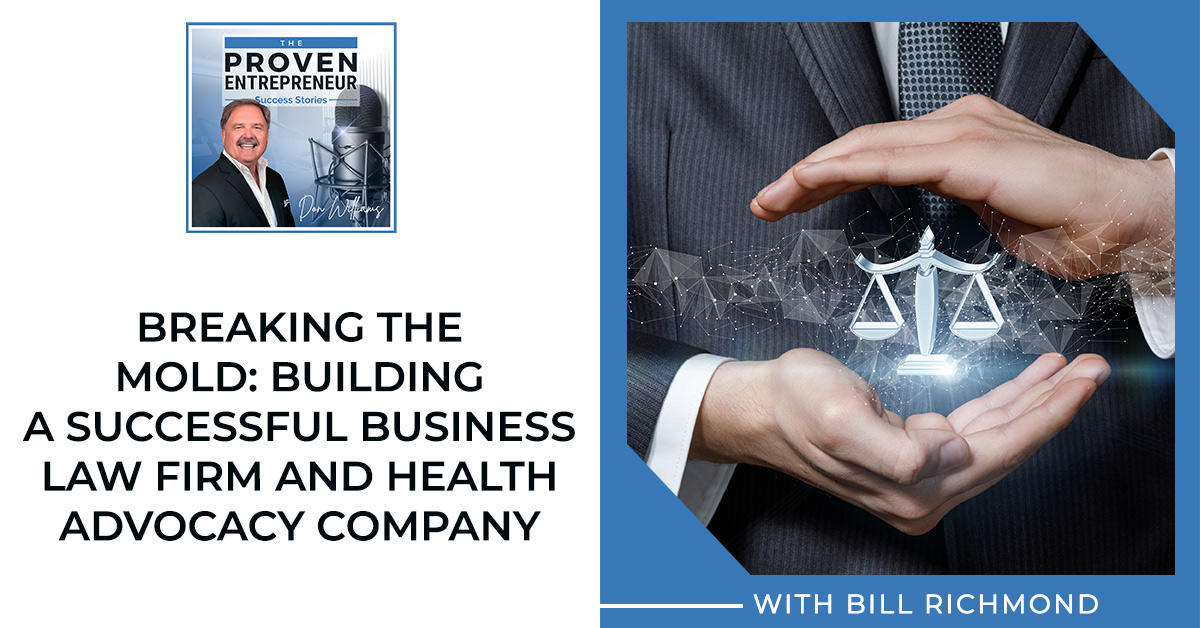
Hey there, fellow listeners! Don Williams here, and boy do I have a treat for you today. In this episode of the Proven Entrepreneur Show, I have the pleasure of hosting Dallas attorney and serial entrepreneur, Bill Richmond. Bill brings a wealth of experience and knowledge to the table, and he’s here to share his fascinating journey with us.
Starting off as a small business lawyer, Bill and his buddies decided to break away from the traditional big law firm model. They formed their own firm, Platt Cheema Richmond, which has now grown to 28 lawyers spread across two offices in Dallas and Houston. They cover everything from business law to commercial real estate, catering to the needs of entrepreneurs like us.
But that’s not all. Last year, Bill embarked on a whole new venture with the creation of CareGuide Advocates. This incredible company is revolutionizing the healthcare system by providing health transparency and advocacy services. They help individuals, as well as companies and health plans, find affordable and fair care options, even when dealing with surprise bills or outrageous hospital charges.
Throughout the episode, Bill shares insights into his entrepreneurial journey, the importance of saying no to problematic people and setting boundaries, and continuous learning as a key to success. He also touches upon the power of intention, imagination, and the freedom to be extraordinary in chasing our dreams.
Now, I know you’re eager to learn more, so don’t waste another second. Tune in now to gain valuable wisdom and discover how Bill’s firms, Platt Cheema Richmond PLLC and CareGuide Advocates, are making a significant impact in their respective industries. Visit cgasaves.com and @pcrfirm.com to learn more about these incredible ventures. Trust me, this episode is pure gold, so go ahead and hit that play button!
Thanks for joining me on this incredible entrepreneurial journey. Stay inspired, my friends!
—
Watch the episode here
Breaking The Mold: Building A Successful Business Law Firm And Health Advocacy Company With Bill Richmond
In this episode, I have a real treat for you. I have Dallas attorney and serial entrepreneur, Bill Richmond. Bill, welcome to the show.
Thanks for having me.
I am glad you’re here. You’re an attorney but you have another business that’s capturing most of your time and attention. Tell us a little bit about that business, the name of that business, and what you do.
I left a big law firm a couple of years ago to start a business law firm with some buddies of mine. We’d all gone to school and gone to our big firms and decided we were unhappy with the model of how big law was working. We loved the clients and the work but not particularly how it was structured. We started very small and have grown it. I served as managing partner for a while and have handed that off to our M&A attorney, Robert Daniel.
Platt Cheema Richmond is the name of the firm. We have grown to about 28 lawyers with 2 offices in Dallas and Houston, full service. We do all the business things, employment, private equity, and commercial real estate. A lot of my entrepreneurial journey was through that. I had been an employee before in W-2, jumped right into the other side, and made that happen for a number of years.
In 2022, through an acquisition/merger, have started a company called CareGuide Advocates. CareGuide does health transparency and advocacy for companies and health plans. It is ultimately helping people to find affordable care in their area locally. We have a lot of proprietary databases, tools, and processes so that people can find care on the front end that’s affordable.
Probably our biggest benefit in a place where we help people the most is when they’re getting surprise bills, out-of-network bills, or outrageously overpriced hospital bills and how to leverage financial assistance programs, error analysis, and that type of thing to save that healthcare dollar. It is both for individuals but also employers in health plans.
I’ve been on the insurance side for several years and brokered 44 states. Transparency and advocacy are two areas that are desperately needed in healthcare in America.
It’s unfortunate. It’s interesting. There’s a thread between the two businesses that I’m in. If people were a little bit nicer to each other, you probably wouldn’t need lawyers. If the healthcare system was a little less broken, you wouldn’t need CareGuide Advocates. I seem to have a pension for finding a place where problems exist and offering a solution. I love it. It’s what drives me every day. I love when our advocacy team is able to save someone $1,000 or $150,000 on bills that would be devastating to them. It is exciting to be able to help.
Is it that an individual reaches out and contracts with you or is this a voluntary benefit through their employee plan?
It’s mostly through employers. We’re embedded in health plans as well. There will be folks who are bundling plans together who will offer our product and services. Sometimes, we’re on the backend. We have existing advocacy groups who need that extra muscle. They will contract with us to help them on the backend. It is exciting when you have a group that does what you do but they need the help and need to up their game so they come and bring it to us, which is nice.
We have a couple of partners who sell on the individual side. You can get it individually through them. Mainly, we’re looking at big self-insured groups in health plans and even TPAs who realize that the future of being a TPA is not just processing. It’s, “How can I help deliver new products and savings for my members and help retain those employer members?”
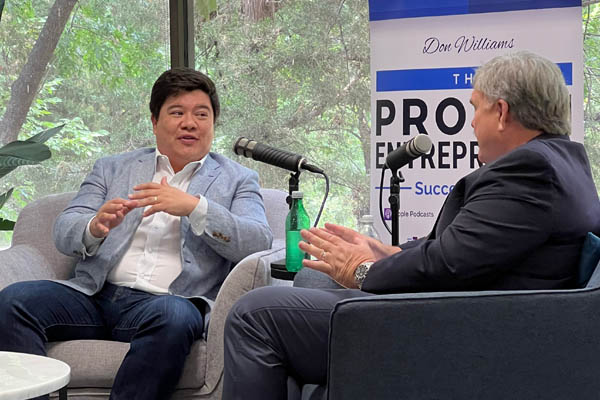
It is a shocking concept. It’s like, “How can I deliver more value to my client?” I love that. I want to take you back to young Bill so 5 to 18. In the household where you were raised, however that looked, was there an entrepreneur? Was there someone who set an entrepreneurial example for you?
Yes, both indirectly inside the house and the house adjacent. I’ll start in the house. My mom is from a small island in Hong Kong where she went to an all-girls boarding school and got a scholarship to go to college in Chicago to play piano. There are aspects of her working life that are also entrepreneurial. That story itself has always been very resonant. Anytime something’s hard, I’m like, “I speak the language here. I have family nearby. She didn’t have any of that.”
She met my dad in Chicago after college. He had moved from St. Louis to Chicago. That’s where they met. She had her piano-teaching business for a long time and had done that for a while. That was part of the entrepreneurial story, including a period when she had fired all of her students for not practicing. I use that example all the time. I’m like, “My family will do it. I will fire all of you if you don’t listen to me.”
My dad has been in sales for a long time. He had been in the dental industry. His entrepreneurial is much more focused on the sales side. He has helped grow businesses and departments and has interacted with dental practices. We spent a lot of time growing up going to meet these dental practices, which are a lot of 1 man or 1 woman owns a shop. Maybe they have 1 or 2 locations. I felt like that house adjacent was the entrepreneurs I got to meet through his business as well.
My grandfather had started a dental manufacturing business. A backdrop of my dad’s side was the entrepreneurial nature of that. He had bought a company that my grandfather had when he was younger in his twenties and had grown it to become publicly traded. It came back private and eventually was sold again. That was always something very interesting. I was seeing the positives of that entrepreneurial journey for him and his family and the negatives.
It’s not all positive?
Yeah, what a shock. Nobody told me when I signed my entrepreneur contract that there would be some downsides.
That sounds like a great example. I admire your mom’s courage. We spent 30 days in China a couple of years ago. It’s radically different from the US and then even more so. After your childhood years, you went straight into university.
Right after high school, I went to college at the University of Missouri. I did not get the most out of the educational part but I did in the extracurricular. I worked in the firearms industry for three years. I almost didn’t go to law school. I stayed and worked in that business. I got to work directly with the owner of the business, the president. I worked on gunsmithing books. I learned to be a competitive shooter. I helped work on a show on the Outdoor Channel and got to see this group of entrepreneurs. It was not just the owner and his spouse who had founded the company but the C-Suite and how they interacted. I still draw on those lessons.
I then came to Dallas to go to SMU for law school. I did end up deciding to make that leap. One of the executives pulled me aside and said, “You can leave Central Missouri and come back but if you don’t leave now, you are never leaving. Go do this thing. If you don’t like it, you can always come back.” I got to Dallas and was like, “I’m good.”
That’s dissimilar to my story. I’m from Wichita, Kansas originally. I love Wichita, Kansas. I am glad I left. Many people didn’t. I’m sure they enjoy it. After law school, you went to work for a big firm.
I worked for a big international litigation firm in the Dallas office, which was great. I had a smaller office here so I got a lot more interaction. Eventually, I got recruited to join a boutique litigation firm. They had about 30 attorneys. I then left about 6 and a half or 7 years in to start my firm.
You partnered with a couple of other attorneys to start with.
That’s correct. It’s with two of my buddies from law school who had both been to big firms. In Platt Cheema Richmond, all of us had gone to law school together. Platt, his name is Judge, which is a great name for a lawyer. He’s also 6’7” so that’s also great. Judge had been a commercial real estate attorney and had left. He was like, “I’m ready to go back out on my own.” He had been in a big firm. He had gone to Romit, who is the Cheema and wanted to go get his business. Romit was like, “I’m leaving too.” They said, “We do commercial real estate law. We’re going to probably need a litigator,” so they called me. We had been friends for a long time and had done business together. That’s where we jumped off.
You were the managing partner for a while and have exited the org chart.
I am still a partner in the firm. I am still directing, bringing in business, and helping to manage some files. I focused a lot on growing the footprint of the firm, our junior partners, senior associates, and mid-level associates. I am getting them more reps and experience and building their books of business. That’s more of what my focus is. From an EOS standpoint, we implemented EOS when I was in my second year being managing partner. I am in the owner’s box so I am no longer on the leadership team, which has been great and an evolution. It’s awesome.
Thinking back on your career, I want you to think about a hard lesson. It’s something that when it did happen, you were like, “That hurt,” but maybe with some perspective and time passing, it turned out that it was positive. Do you have a hard lesson you can share with us?
Every hard lesson in my mind is you still got the lesson part. It may have been hard. The first thing that came to mind when you asked that question was my first termination at the firm. Judge, my law partner, is a fantastic entrepreneur on his own. I’m still trying to learn as much as what he has forgotten as an entrepreneur. He had given me a lot of good advice about how to approach this termination because he had done more in some other businesses that he had been a part of. It’s the nature of his practice.
I can vividly remember it going south. The person didn’t understand, which meant there was a failure on my part to let them know ahead of time. It should never be a surprise, whether it’s a review or a termination, that kind of thing. I was not as prepared as I should have been. We didn’t set it up the right way. In the conversation, it was nails on a chalkboard.
I was engaging too much on the why. This is not a time for rational thinking. Most times, when people are being terminated, even if they are a very rational person, they are realizing that their adrenaline’s going and their shame factor is up. It’s all of these different EQ things that I would have realized. I, too, was in this heightened state of being sad and disappointed in myself and the person I was having to terminate. I draw on that every time I have to have a review or a conversation.
Positive or negative, it’s my obligation as the steward of this ship to be able to do it the right way. That was several years ago and I will always remember it. I got good candid feedback from Judge who was like, “You know how that didn’t go the way it should be.” I was like, “I know how bad that was. Let’s talk about how I could have done it better.” That sticks with me.
Maybe the only other one that immediately comes to mind is following my gut when it comes to bad clients. I mean in both businesses but also, we regularly have to, on the litigation side, help clients who have worked with someone and gotten into bed in one way or the fashion, whether it was a vendor or an investor. It’s not good. We can give them advice like, “If it smells bad on the honeymoon, it probably isn’t going to get better when you get to the rollercoaster of the real relationship itself even on the business front.”
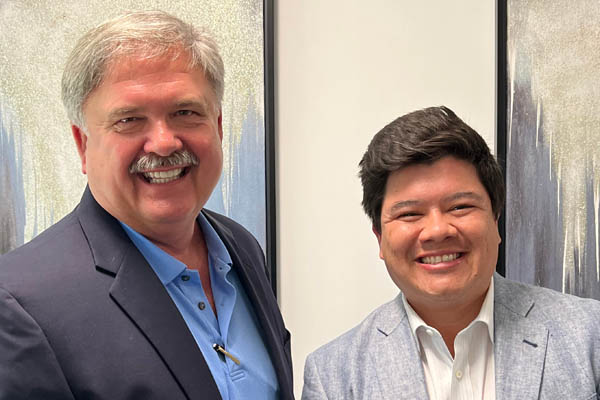
It is recognizing that that’s important for us too when we’re selecting anyone that we’re working with across the board. A great entrepreneur friend of mine, Sam Melamed, always says, “Life’s too short to work with jerks.” There are various ways. Don’t work with craps. Choose your negative word there. There’s a full gamut of those kinds of people in the world as we all know. I have had a couple of instances where it wasn’t the case.
Sometimes, the best answer is, “I’ll pass.” It’s scary to say no. It’s hard. It’s counterintuitive to the entrepreneur who wants to say yes and certainly wants to onboard all the businesses that they can. We’re all in the people business regardless of the product, service, or experience we bring to the world. We have employees and their people. We have customers and their people. We have to remember the basics that this is a people business.
It is also being able to honestly know the boundaries of your capabilities and say, “You have high standards. I have high standards. I can’t meet the standard that you want but let me get you somewhere else.” That’s the most professional entrepreneurial way you can pull the rip court on something and not have anyone be embarrassed.
If you got to tell someone no, they’re going to want to know why. Someone had given me that advice and said, “Make it about meeting their standards.” It’s harder for them to go, “I’ll lower my standards to work with you.” You’re saying, “You have high standards. You deserve to have those. Let me get you to someone who can meet those standards. It’s not me.”
If we knew everything you know and there is a nugget of wisdom or, in your case, a bucket full of nuggets, would you share one nugget of entrepreneurial wisdom with us?
A nugget that was given to me that I’m happy to pass on here and then I revisit, polish, and stare at all the time is that the drive for learning is critical in two aspects. If you’re resting, you’re losing in the sense of there are a million other entrepreneurs in your business trying to do more. At the same time, it doesn’t always have to be you that’s doing it. How do you achieve the balance of learning not only your craft but learning how to pass that craft within your organization, whether it’s delegation, outsourcing, saying no, or whatever that may be?
In my mind, when you say no, you’re deferring it to the future. You’re not saying no forever. You’re saying, “No, I’m not going to do this thing right now until it’s the right time for me, my business, and my team.” Constantly learning and having an open mindset is what enables so many great things, whether it is following 10 or 20 good newsletters or people on Twitter who are entrepreneurs or taking a moment to listen to the customer and go, “They keep complaining about this. Maybe they’re not idiots. Maybe they are but maybe they’re not. Maybe there’s something there. Regardless, they’re unhappy. How can I address this issue?” It is learning from your frontline workers about what’s happening on the ground.
I’m reminded of a story of Intel when they were getting the pants beat off of them on their chips. Someone on the frontline in a small market was like, “These guys are coming for our lunch. We need to do something different.” It’s that story of the entire organization pivoting over a 6 to 8-month period to regain market share all because a frontline manager said something, which was step 1, and then step 2, the guys at the top didn’t have the ego to block them from listening. They were able to look past that and do it. That takes a learning mindset. If you’re learning all the time, you’re going to better set yourself up to move forward.
If you're learning all the time, you're going to better set yourself up to move forward. Click To TweetThere’s always a next step no matter where you’re at. You have to learn sometimes how to take that next step and which step to take. If I put you in a time machine, took you back to eighteen-year-old Bill, and you get to spend 1 minute or 2 and share something you wish you knew then that you know now that would’ve sped you along your journey, what would that be?
I would’ve said, “You won’t get to your destination if you haven’t picked it. Spend time figuring out the destination.” I felt like my college years were a lot of combinations of unproductive wandering. Maybe unproductive is not the right word but unguided wandering. There’s wandering, like being open to new experiences, seeing where things are going to go but then there’s wandering that the chances of something great coming out of it are very low. I would say between that and determining the line between what’s expected of me and what is possible.
The thing that I see that holds back so many great people is insecurity or what they think is expected of them. They don’t even necessarily know it all the time. They’re like, “This is what this kind of person does. This is what people from my family do. This is what people from this town do. We don’t do X, Y, and Z.” Generally, what that X, Y, and Z thing isn’t like, “We don’t murder people.” Nobody was supposed to be murdering people but they have set that self-limiter on themselves because they didn’t have the imagination to do it.
I suffer from that all the time where Imposter syndrome is one of those types of things, which every entrepreneur has at some point, if not daily. The idea of knowing that I should spend time introspecting on the kind of life I wanted to live would’ve helped me to make a few more different decisions about where I was spending my time and who I was spending my time with. I probably still would’ve done some stupid things, which is pretty normal at that age.
It’s part of being young.
It’s still something now. When I think about where I want to go as a father, an entrepreneur, or as a person, what are the things I’m trying to do? Sometimes, I look up and go, “I don’t think this is getting me where I want to go. I should probably re-evaluate where it is I’m trying to go and then use that to then measure whether I am taking the steps to get in that direction.”
It is the power of intention, knowing what you want, what you’re shooting for, and then overcoming the chains of your comfort zone. Everybody loves their comfort zone. It’s comfortable in there. Why wouldn’t you love your comfort zone? It’s comfortable. The good stuff is outside. What we know about comfort zone physics is every time I step out of my comfort zone, my comfort zone expands. Many entrepreneurs are racing out of their comfort zone every day because that’s where the good stuff is.
I was talking to some colleagues. I said, “Your fear of the fringe is what keeps you from the frontier.” By definition, the frontier is the fringe. The other side of that coin is a phrase that I’ve heard a couple of times that is important. By definition, being extraordinary is not ordinary but you have to be different. You have to think and do differently if you want to be something beyond that normal. In some cases, ordinary makes sense in a season, a life, or a certain set of decisions. Few people wake up and say, “I want to be ordinary,” or look back at life and go, “What I missed out on was being ordinary,” in the dull sense of the word.
It couldn’t hurt me any more than to say, “Don, you’re average.” It’s adding to the agony.
It’s a good thing you’re not. That’s why you’re doing great things. That’s the point. It is chasing that and knowing and saying it is possible, that power of intention. All those things Venn diagram overlap with each other. It is the intention and freedom to be different and extraordinary. Set an intention that is outside of the norm of where you are and where you’ve been or the imagination of your peer group, your family, or whatever it may be. You can go, “It’s all possible.” That imagination of what’s possible is what drives every innovation. By definition, it cannot be something that was normal. It had to have been something that was different if it was going to be new, better, and improved.
That imagination of what's possible is what drives every innovation. Click To TweetHow would the audience reach out and find out about CareGuide Advocates?
Our website is CGASaves.com. You can also find us on LinkedIn. Look up CareGuide Advocates. We got videos, a member journey, and a few different things that you can learn about. The law firm is PCRFirm.com. That’s where you can see our probably 12 or 13 different practice areas. Both of them are out there on the web and doing fun things.
Thank you so much. It was a pleasure to have you on the show.
Thank you for having me.
That’s the episode of the show. I’ll see you next time.
Important Links
About Bill Richmond
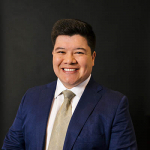 From St. Louis, Mizzou for undergrad, SMU Lawschool. Practiced in “BigLaw” doing business litigation before co-founding Platt Cheema Richmond PLLC (www.pcrfirm.com) in 2015. In nearly 8 years, served as Managing Partner and head of litigation representing entrepeneurs and companies in new media, healthcare, and commercial real estate. Firm now has 12 practice areas including private equity, tax, IP litigation, employment law, M&A, and commercial real estate across nearly 30 attorneys, with offices in Dallas and Houston. Handed off Managing Partner role to our M&A partner Robert Daniel in early 2022.
From St. Louis, Mizzou for undergrad, SMU Lawschool. Practiced in “BigLaw” doing business litigation before co-founding Platt Cheema Richmond PLLC (www.pcrfirm.com) in 2015. In nearly 8 years, served as Managing Partner and head of litigation representing entrepeneurs and companies in new media, healthcare, and commercial real estate. Firm now has 12 practice areas including private equity, tax, IP litigation, employment law, M&A, and commercial real estate across nearly 30 attorneys, with offices in Dallas and Houston. Handed off Managing Partner role to our M&A partner Robert Daniel in early 2022.
In 2022, merged a healthcare price transparency company with a patient advocacy business to form CareGuide Advocates (www.cgasaves.com). CGA focuses on helping self-insured employers, health plans, and TPAs manage health care claims through world class cost containment and proprietary health pricing tools. Both before individuals need care and after they’ve incurred surprise bills or outrageously overpriced hospital invoices, CGA deploys error analysis, bill negotiation, and financial assistance to bring down the costs both for the individual and the employer and their health plan. As co-founder and CEO, I help manage our various departments including sales and operations, and we currently have 16 employees across three states.
For information on how to work with Don visit Work With Don Williams
You can also reach out to Don Williams at https://donwilliamsglobal.com
Please join Don and his businesses in support of St. Jude’s Children Research Hospital in its Mission to cure Childhood Cancers. You can donate to St. Jude at stjude.org/donate
